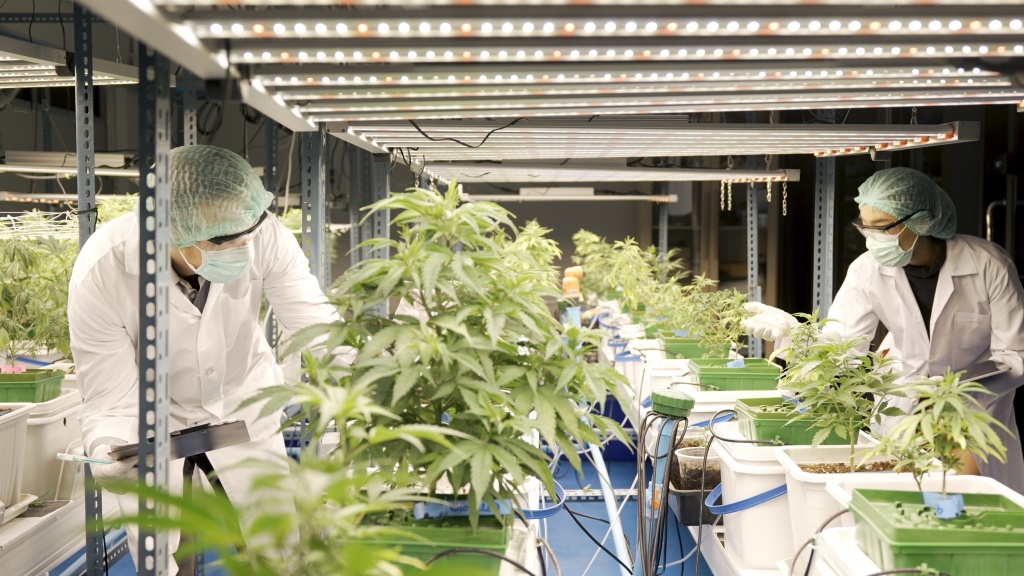Op-ed: Building a sustainable cannabis industry means putting workers first

GreenState regularly shares contributor perspectives on the industry and trends. The ideas expressed here are wholly those of the author and do not necessarily reflect those of GreenState’s newsroom.
Every morning across the country, hundreds of thousands of people show up to power the cannabis industry. From dispensaries and distributors to grow operations and processing facilities, workers are the backbone of one of the fastest-growing sectors in the United States. Annual revenue in the cannabis industry is expected to grow to more than $80 billion by 2035, a clear sign this industry isn’t just a fad — it’s here to stay. But it also raises the question: what kind of industry are we building? Will it be one where jobs are temporary and unpredictable, or one where jobs become stable, long-term careers?
RELATED: Op-ed: Proposed federal rule could give cannabis movement powerful allies
That choice is in front of us right now. Cannabis workers nationwide are organizing with unions like the Teamsters because they want to build this industry the right way. They want to ensure that its explosive growth translates into lasting opportunity. And employers who recognize that unions are not just good for workers but good for business will be the ones who succeed in the years to come.
Stability, safety, and standards
Anyone involved in cannabis knows the challenges employers face. This is a sector still defined by uncertainty, with inconsistent state tax codes, a lack of federal legalization, and limited access to traditional banking. These problems all create volatility that other industries simply don’t contend with. For workers, that instability often means jobs that vanish overnight. For employers, it means difficulty planning, investing, or growing responsibly. In an industry still in transition, the only true source of stability is the workers themselves. Their dedication, skill, and organizing efforts are what anchor this sector as it grows.
This is where the unions like the Teamsters come in. Collective bargaining and enforceable contracts provide a level of predictability for everyone involved. By setting clear industry standards and creating a baseline of fairness, unions help stabilize a sector still finding its footing.
Employers who recognize this reality — and who see workers as partners rather than disposable labor — are far more likely to succeed in the long run. That’s why we have not shied away from standing with cannabis employers on shared priorities. We have joined companies in lobbying for reforms like the SAFER Banking Act because banking access is a cornerstone of stability for the industry.
RELATED: Remote cannabis jobs you can do from anywhere
But stability isn’t just about economics. It’s also about health and safety. Cannabis workers face real risks, from exposure to hazardous chemicals to the physical demands of cultivation and processing. Contracts like the one the Teamers union has ensure that protective equipment is supplied, safety protocols are enforced, and workers can report unsafe conditions without retaliation. Health and safety committees hold employers accountable while giving workers a voice in shaping policies that affect their daily lives.
When standards are upheld and risks are managed, there are fewer accidents, less turnover, and a more skilled and experienced workforce. A union contract creates enforceable rights, giving workers peace of mind and giving employers the confidence that comes with a stable, dedicated team.
One of the biggest concerns we hear from cannabis workers is job security. Too many people in this industry have seen their hours cut without notice, been fired without cause, or watched their workplace shutter overnight. Unions provide a pathway out of that uncertainty through seniority-based scheduling, fair processes for addressing disciplinary issues, and guaranteed wage increases. That’s how we turn short-term jobs into long-term careers.
RELATED: How to kickstart a career in cannabis
Cannabis workers are organizing because they believe in the future of this industry. They don’t want cannabis to become another gig economy experiment where people cycle in and out without security or growth. They want careers with dignity, stability, and a voice in shaping the future. Employers who recognize that — and who are willing to work with the Teamsters to make it happen — will be the ones who last.
The cannabis industry is still young. We have a rare opportunity right now to make foundational choices that will determine its long-term trajectory. This is not about employers versus workers, it’s about building an industry the right way. By putting workers at the center, we can create a sector that doesn’t just survive, but thrives — delivering good jobs, powering strong companies, and supporting communities. The future of cannabis is being written today, and the Teamsters are making sure it’s a future worth believing in.